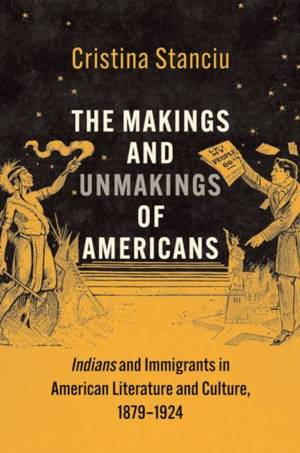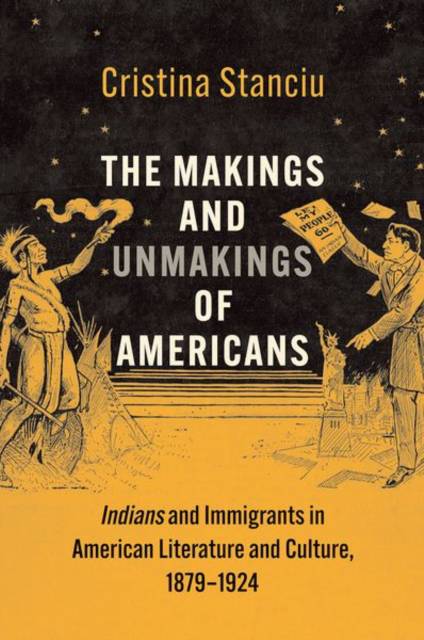
Je cadeautjes zeker op tijd in huis hebben voor de feestdagen? Kom langs in onze winkels en vind het perfecte geschenk!
- Afhalen na 1 uur in een winkel met voorraad
- Gratis thuislevering in België vanaf € 30
- Ruim aanbod met 7 miljoen producten
Je cadeautjes zeker op tijd in huis hebben voor de feestdagen? Kom langs in onze winkels en vind het perfecte geschenk!
- Afhalen na 1 uur in een winkel met voorraad
- Gratis thuislevering in België vanaf € 30
- Ruim aanbod met 7 miljoen producten
Zoeken
The Makings and Unmakings of Americans
Indians and Immigrants in American Literature and Culture, 1879-1924
Cristina Stanciu
€ 47,45
+ 94 punten
Omschrijving
Challenges the myth of the United States as a nation of immigrants by bringing together two groups rarely read together: Native Americans and Eastern European immigrants In this cultural history of Americanization during the Progressive Era, Cristina Stanciu argues that new immigrants and Native Americans shaped the intellectual and cultural debates over inclusion and exclusion, challenging ideas of national belonging, citizenship, and literary and cultural production. Deeply grounded in a wide-ranging archive of Indigenous and new immigrant writing and visual culture--including congressional acts, testimonies, news reports, cartoons, poetry, fiction, and silent film--this book brings together voices of Native and immigrant America. Stanciu shows that, although Native Americans and new immigrants faced different legal and cultural obstacles to citizenship, the challenges they faced and their resistance to assimilation and Americanization often ran along parallel paths. Both struggled against idealized models of American citizenship that dominated public spaces. Both participated in government-sponsored Americanization efforts and worked to gain agency and sovereignty while negotiating naturalization. Rethinking popular understandings of Americanization, Stanciu argues that the new immigrants and Native Americans at the heart of this book expanded the narrow definitions of American identity.
Specificaties
Betrokkenen
- Auteur(s):
- Uitgeverij:
Inhoud
- Aantal bladzijden:
- 384
- Taal:
- Engels
- Reeks:
Eigenschappen
- Productcode (EAN):
- 9780300224351
- Verschijningsdatum:
- 24/01/2023
- Uitvoering:
- Hardcover
- Formaat:
- Genaaid
- Afmetingen:
- 165 mm x 241 mm
- Gewicht:
- 703 g

Alleen bij Standaard Boekhandel
+ 94 punten op je klantenkaart van Standaard Boekhandel
Beoordelingen
We publiceren alleen reviews die voldoen aan de voorwaarden voor reviews. Bekijk onze voorwaarden voor reviews.









